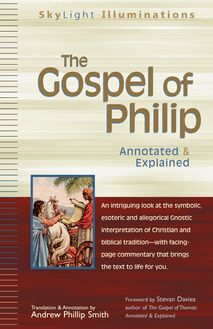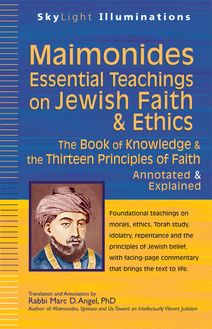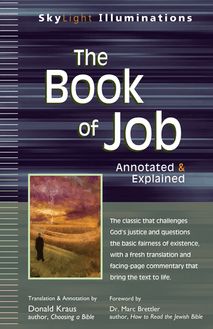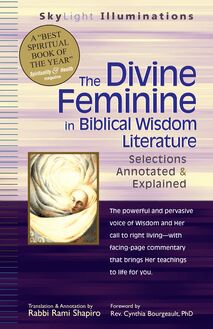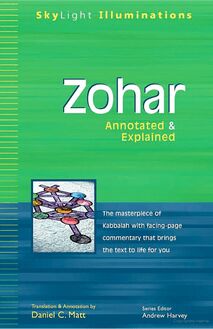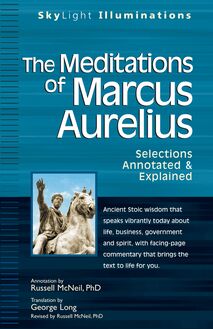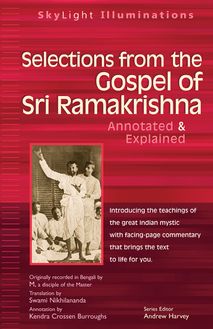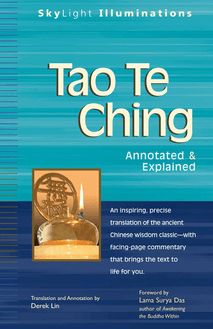-
 Univers
Univers
-
 Ebooks
Ebooks
-
 Livres audio
Livres audio
-
 Presse
Presse
-
 Podcasts
Podcasts
-
 BD
BD
-
 Documents
Documents
-
- Cours
- Révisions
- Ressources pédagogiques
- Sciences de l’éducation
- Manuels scolaires
- Langues
- Travaux de classe
- Annales de BEP
- Etudes supérieures
- Maternelle et primaire
- Fiches de lecture
- Orientation scolaire
- Méthodologie
- Corrigés de devoir
- Annales d’examens et concours
- Annales du bac
- Annales du brevet
- Rapports de stage
La lecture à portée de main
Vous pourrez modifier la taille du texte de cet ouvrage
Découvre YouScribe en t'inscrivant gratuitement
Je m'inscrisDécouvre YouScribe en t'inscrivant gratuitement
Je m'inscrisEn savoir plus
Vous pourrez modifier la taille du texte de cet ouvrage
En savoir plus

Description
The clear and compelling wisdom of the rabbinic sages can
become a companion for your own spiritual journey.
At the heart of Judaism is an ethical imperative to live life from your true self, as the image and likeness of God. To do this, you must see the greatness of God manifest in all things, and therefore engage each moment with grace, humility, and justice. This imperative flowers in the words of the early Rabbis (250 BCE–250 CE), who captured God’s call to be holy in Pirke Avot, a collection of pithy sayings on how best to live an ethical life.
This engaging introduction to the wisdom sayings of the rabbinic sages puts you in direct conversation with them, allowing the sages to speak directly to you about what matters in life and how to live it with dignity. With fresh, contemporary translation and provocative commentary, Rabbi Rami Shapiro focuses on the central themes in this Jewish wisdom compendium—study, kindness, compassion. He clarifies the rabbinic proverbs and parables in order to expose the ethical principles at their root. By recalling the ancient voices of the rabbinic sages, he shows us the contemporary significance of their timeless wisdom and distills Pirke Avot not as a book about ethics but as a practical guide to living ethically today.
Now you can experience the wisdom of the early Rabbis even if you have no previous knowledge of Judaism or rabbinic literature. This SkyLight Illuminations edition presents the ethical teachings of the rabbinic sages, with insightful yet unobtrusive commentary that conveys Pirke Avot’s core challenge of God to the Jewish people, and through them all humanity: We are to be holy as God is holy. We are to be, in a human way, what God is in a divine way.
Sujets
Informations
| Publié par | Turner Publishing Company |
| Date de parution | 23 avril 2011 |
| Nombre de lectures | 0 |
| EAN13 | 9781594733376 |
| Langue | English |
Informations légales : prix de location à la page 0,0850€. Cette information est donnée uniquement à titre indicatif conformément à la législation en vigueur.
Extrait
Books in the SkyLight Illuminations Series
The Art of War-Spirituality for Conflict: Annotated & Explained
Bhagavad Gita: Annotated & Explained
The Book of Mormon: Selections Annotated & Explained
Celtic Christian Spirituality: Essential Writings-Annotated & Explained
Chuang-tzu: The Tao of Perfect Happiness-Selections Annotated & Explained
Dhammapada: Annotated & Explained
The Divine Feminine in Biblical Wisdom Literature: Selections Annotated & Explained
Ecclesiastes: Annotated & Explained
The End of Days: Essential Selections from Apocalyptic Texts-Annotated & Explained
Ethics of the Sages: Pirke Avot-Annotated & Explained
Ghazali on the Principles of Islamic Spirituality: Selections from Forty Foundations of Religion-Annotated & Explained
Gnostic Writings on the Soul: Annotated & Explained
The Gospel of Philip: Annotated & Explained
The Gospel of Thomas: Annotated & Explained
Hasidic Tales: Annotated & Explained
The Hebrew Prophets: Selections Annotated & Explained
The Hidden Gospel of Matthew: Annotated & Explained
The Infancy Gospels of Jesus: Apocryphal Tales from the Childhoods of Mary and Jesus-Annotated & Explained
The Lost Sayings of Jesus: Teachings from Ancient Christian, Jewish, Gnostic, and Islamic Sources-Annotated & Explained
The Meditations of Marcus Aurelius: Selections Annotated & Explained
Native American Stories of the Sacred: Annotated & Explained
Philokalia: The Eastern Christian Spiritual Texts-Annotated & Explained
The Qur an and Sayings of Prophet Muhammad: Selections Annotated & Explained
Rumi and Islam: Selections from His Stories, Poems, and Discourses-Annotated & Explained
The Sacred Writings of Paul: Selections Annotated & Explained
Saint Augustine of Hippo: Selections from Confessions and Other Essential Writings-Annotated & Explained
St. Ignatius Loyola-The Spiritual Writings: Selections Annotated & Explained
The Secret Book of John: The Gnostic Gospel-Annotated & Explained
Selections from the Gospel of Sri Ramakrishna: Annotated & Explained
Sex Texts from the Bible: Selections Annotated & Explained
Spiritual Writings on Mary: Annotated & Explained
Tanya, the Masterpiece of Hasidic Wisdom: Selections Annotated & Explained
Tao Te Ching: Annotated & Explained
The Way of a Pilgrim: The Jesus Prayer Journey-Annotated & Explained
Zohar: Annotated & Explained
Ethics of the Sages: Pirke Avot- Annotated & Explained 2006 First Printing
Translation, annotation, and introductory material & #169; 2006 by Rami Shapiro
All rights reserved. No part of this book may be reproduced or transmitted in any form or by any means, electronic or mechanical, including photocopying, recording, or by any information storage and retrieval system, without permission in writing from the publisher.
For information regarding permission to reprint material from this book, please mail or fax your request in writing to SkyLight Paths Publishing, Permissions Department, at the address / fax number listed below, or e-mail your request to permissions@skylightpaths.com.
Library of Congress Cataloging-in-Publication Data Mishnah. Avot. Ethics of the sages : Pirke Avot-annotated & explained / translation & annotation by Rami Shapiro. p. cm. & #8212; (SkyLight illuminations series) Includes bibliographical references. ISBN-13: 978-1-59473-207-2 (quality pbk.) ISBN-10: 1-59473-207-8 (quality pbk.) 1. Mishnah. Avot-Commentaries. I. Shapiro, Rami M. II. Mishnah. Avot. English. III. Title. BM506.A2 2006 296.1'234707-dc22 2006023420
10 9 8 7 6 5 4 3 2 1
Manufactured in the United States of America
SkyLight Paths Publishing is creating a place where people of different spiritual traditions come together for challenge and inspiration, a place where we can help each other understand the mystery that lies at the heart of our existence.
SkyLight Paths sees both believers and seekers as a community that increasingly transcends traditional boundaries of religion and denomination-people wanting to learn from each other, walking together, finding the way.
SkyLight Paths, & #8220;Walking Together, Finding the Way, and colophon are trademarks of LongHill Partners, Inc., registered in the U.S. Patent and Trademark Office.
Walking Together, Finding the Way® Published by SkyLight Paths Publishing A Division of LongHill Partners, Inc. Sunset Farm Offices, Route 4, P.O. Box 237 Woodstock, VT 05091 Tel: (802) 457-4000 Fax: (802) 457-4004 www.skylightpaths.com
My love of Pirke Avot comes from my love of the man who first introduced it to me, Dr. Ellis Rivkin of Hebrew Union College. I first heard him at the HUC campus in Jerusalem in the summer of 1975, before I had entered rabbinical school. His teaching opened worlds to me and in me that I never suspected existed in either Judaism or myself. He was my professor, guide, mentor, and friend for the five years of my rabbinic training and has remained all these over the decades since. I don t know if he knows how much he shaped me. I hope this book makes him proud.
Contents
Introduction
A Word on Translation
Biographical Sketches of the Rabbis in Pirke Avot
Prologue
Chapter One
Chapter Two
Chapter Three
Chapter Four
Chapter Five
Chapter Six
Epilogue
Glossary
Suggested Reading
About SkyLight Paths
Copyright
Introduction
Pirke Avot , literally Chapters of the Fathers but often referred to as Ethics of the Sages, has been my steady companion for over forty years. I first stumbled across an English translation in the second-floor stacks of Johnson s Used Bookstore in my hometown, Springfield, Massachusetts. I would spend hours sifting through the piles and piles of books and magazines that crammed the shelves and rose in great heaps on the tables that filled this musty loft almost to bursting. It was my Treasure Island, my Magic Kingdom.
I remember finding a copy of Judah Goldin s Living Talmud , his translation of Pirke Avot . At the time, 1967 or 1968, the book was only four or five years old, but this particular copy was already well worn, with a fractured spine and fraying pages. I was not particularly interested in the Talmud, but something about the book called to me. I bought it and walked to the courthouse steps to sit and read it. It was not my father s Talmud.
Instead of the deep debate and, to me, all-too-legalistic obsessions of the Rabbis, Pirke Avot is a compendium of pithy, insightful, and engaging sayings on what matters in life, and how to live it with dignity. While some of the references escaped me, the vast majority of the teachings were clear and compelling. I read the book in no more than an hour or so. I then stuffed it into the back pocket of my Levi s and walked to the bus stop to go home.
As I walked I kept thinking about what I had read. I pulled the book out of my pocket, flipped to the teaching that I was thinking about, and reread it. On second reading I found something more. The same was true on the third and fourth reading as well. As Ben Bag Bag says, Turn Her and turn Her, for all things are in Her (5:26). While the her refers to Torah, the Five Books of Moses, the same can be said for Pirke Avot as well.
I have turned this book over and over, and it never fails to instruct and surprise. I made my first translation, a self-published book called Teachings , in the 1980s, and Bell Tower published my Zen-like interpretive version in 1993. This version you are reading is more accurate, moving my interpretation to the commentary on the facing page.
How I understand what the text says, then, is easily discovered in the pages of translation and commentary. What the text is, why it matters, and what it means is the subject of this short introduction.
What Is Pirke Avot ?
Pirke Avot is the ninth of ten tractates found in Nezikin , the Book of Damages, which is the fourth volume of the six-volume Mishnah. The Mishnah (from the Hebrew word shanah , to repeat, as in To repeat what one has learned from one s teacher ) is the first authoritative collection of rabbinic teaching. Redacted during the first two decades of the second century CE by Yehudah HaNasi (Judah the Prince, or president of the Sanhedrin, the rabbinic court), material in the Mishnah spans a five-hundred-year period from the scribes in the time of Ezra to the tannaim (the early rabbinic sages). Commentary on the Mishnah by later Rabbis called amoraim (from amar , to say or retell ), who lived between 200 CE and 500 CE in both Israel and Babylonia, is called Gemara (from gamar , to complete ). Together, Mishnah and Gemara compose the Talmud, the Learning, which is the heart of Rabbinic Judaism.
Unlike the rest of the Mishnah, Pirke Avot has no Gemara, no rabbinic amplification by the amoraim . And, unlike the rest of the Talmud, Pirke Avot lacks any legal or narrative content. It is simply a compendium of sayings primarily dealing with how best to live your life.
Spanning a period from the second century BCE to the second century CE, Pirke Avot collects the ethical insights of the five zugot (pairs), the leaders of the Sanhedrin, and forty-three sages who came after them. The Sanhedrin, from the Greek synedrion , meaning sitting together, is the seventy-one-member council of Jewish sages. The Sanhedrin was led by a Nasi (Prince), who functioned as the president, and an Av Bet Din (Father of the Court), who acted as vice president. The sixty-nine additional members sat in a semicircle when debating issues brought before them. The zugot comprised a Nasi and an Av Bet Din. The five zugot were as follows:
Yose ben Yoezer and Yose ben Yochanan (prior to 160 BCE)
Yehoshua ben Perachyah and Nittai of Arbel (c. 130 BCE)
Yehudah ben Tabbai and Shimon ben Shatach (c. 100-75 BCE)
Shemayah and Avtalyon (first century BCE)
Hillel and Shammai (end of first century BCE to just prior to 30 CE)
Originally Pirke Avot consisted of five chapters. A sixth chapter of post-Mishnaic material was added by Bab
-
 Univers
Univers
-
 Ebooks
Ebooks
-
 Livres audio
Livres audio
-
 Presse
Presse
-
 Podcasts
Podcasts
-
 BD
BD
-
 Documents
Documents
-
Jeunesse
-
Littérature
-
Ressources professionnelles
-
Santé et bien-être
-
Savoirs
-
Education
-
Loisirs et hobbies
-
Art, musique et cinéma
-
Actualité et débat de société
-
Jeunesse
-
Littérature
-
Ressources professionnelles
-
Santé et bien-être
-
Savoirs
-
Education
-
Loisirs et hobbies
-
Art, musique et cinéma
-
Actualité et débat de société
-
Actualités
-
Lifestyle
-
Presse jeunesse
-
Presse professionnelle
-
Pratique
-
Presse sportive
-
Presse internationale
-
Culture & Médias
-
Action et Aventures
-
Science-fiction et Fantasy
-
Société
-
Jeunesse
-
Littérature
-
Ressources professionnelles
-
Santé et bien-être
-
Savoirs
-
Education
-
Loisirs et hobbies
-
Art, musique et cinéma
-
Actualité et débat de société
- Cours
- Révisions
- Ressources pédagogiques
- Sciences de l’éducation
- Manuels scolaires
- Langues
- Travaux de classe
- Annales de BEP
- Etudes supérieures
- Maternelle et primaire
- Fiches de lecture
- Orientation scolaire
- Méthodologie
- Corrigés de devoir
- Annales d’examens et concours
- Annales du bac
- Annales du brevet
- Rapports de stage

